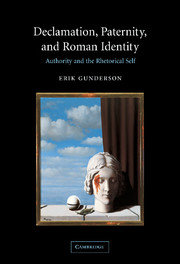Appendix 1 - Further reading
Published online by Cambridge University Press: 10 December 2009
Summary
I hope that the curious who wish to follow up with further reading of declamatory literature will find what follows useful. A word of warning, though: even basic tools are relatively scarce. Seneca the Elder has remained the most available of the authors but his collection is in many ways the least typical of the genre. Accordingly Seneca's favored snippets have long been standing in as representatives of the whole of declamation. Reliable Latin editions of all of the authors have been available for less than twenty-five years. Indeed, many decent-sized libraries do not even have a complete set of these editions. There are no commentaries on most of the texts: Winterbottom's commentary on the Minor Declamations is as welcome as its very existence is unexpected. Sussman's translation of the Major Declamations in 1987 was the first translation of them into English in 300 years. The Minor Declamations have yet to be translated. The obscurity of declamation, then, has been able to endure at least partially because it has remained fiercely inaccessible to any but the most determined.
- Type
- Chapter
- Information
- Declamation, Paternity, and Roman IdentityAuthority and the Rhetorical Self, pp. 238 - 239Publisher: Cambridge University PressPrint publication year: 2003

